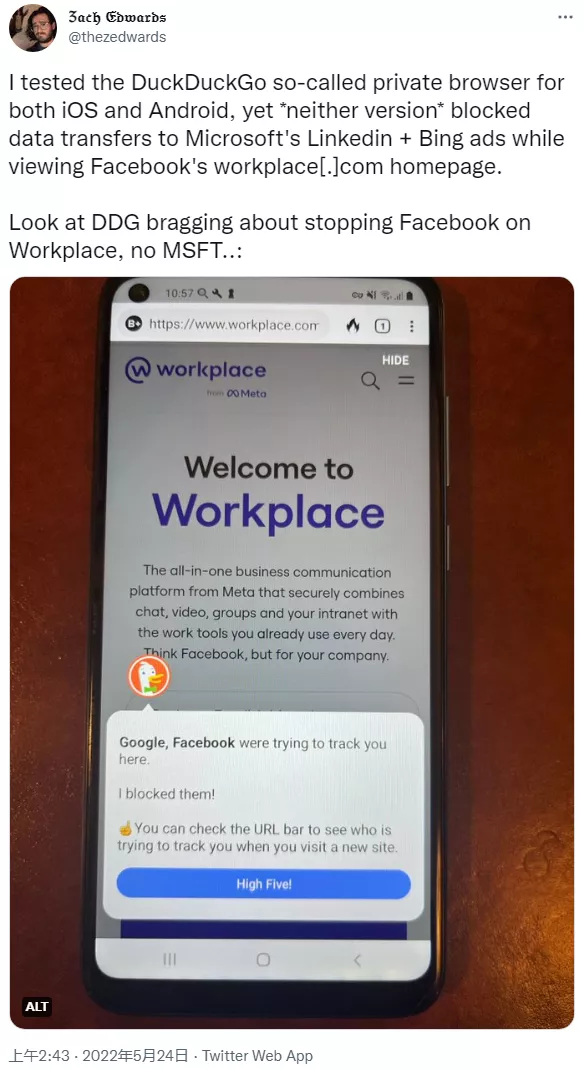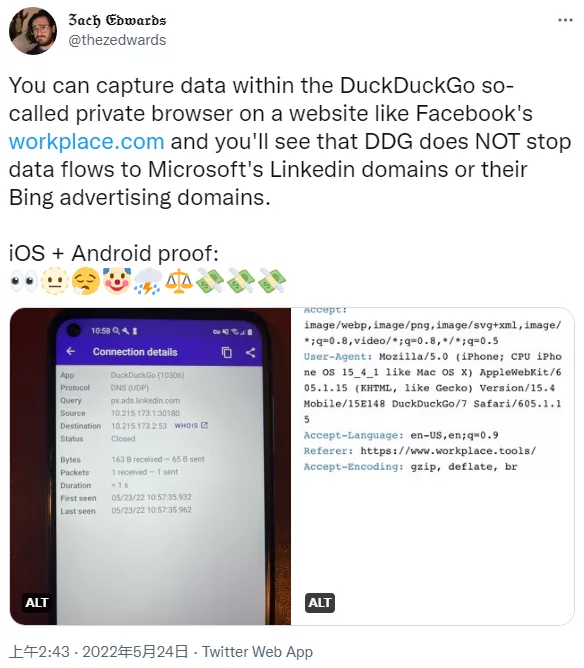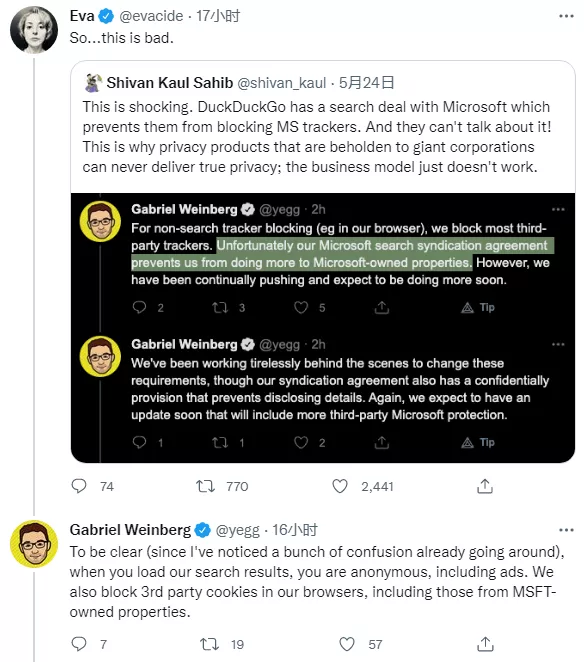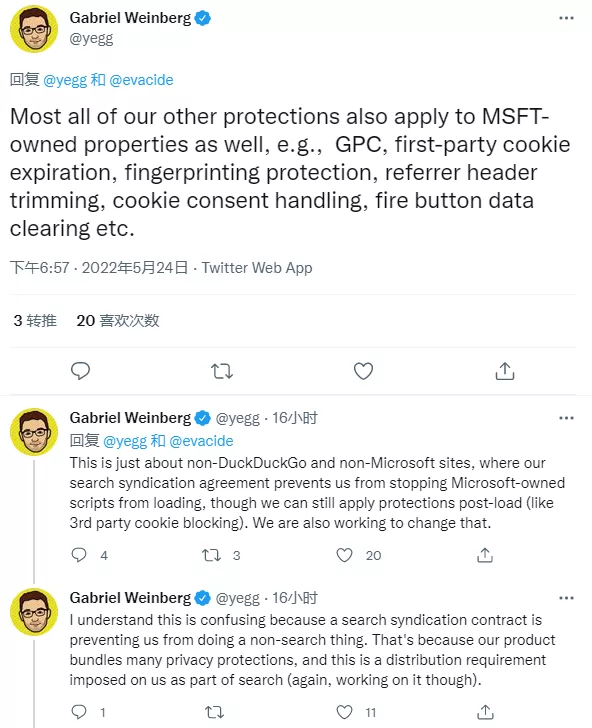As an enterprise dedicated to Internet privacy, duckduckgo has been promoting the brand experience around "no tracking web search" for many years, and launched a privacy browser with built-in tracking and interception function earlier However, after in-depth investigation of its tracking protection mechanism, researchers found some embarrassing places - duckduckgo even provided some exceptions for some advertising data requests from its search partner Microsoft

On Tuesday night, Zach Edwards shared his audit results on Twitter and found that DDG mobile browser would not block advertising requests made by Microsoft scripts on non Microsoft network assets.
It should be noted that this is different from what happens when users actually click on advertisements when using DDG - because its privacy policy clearly discloses that all dark pits are filled.

Edwards tried to work in Facebook's workplace Com website tested the browser data flow and found that even if DDG informed users that it had blocked Google and Facebook trackers, it did not cut off the data flow related to Microsoft's browsing on third-party sites.

To this end, he also had many discussions with Gabe Weinberg, founder and CEO of DDG, on twitter.
The latter initially tried to emphasize that DDG browser did organize all the content (such as tracking cookies by third parties including Microsoft) to dilute the negative impact, and then tried to throw the pot on others (not related to duckduckgo search).

However, the reality is that the exception of DDG browser is indeed equivalent to exempting the interception restriction of transmitting some advertising data to Microsoft's Bing search / LinkedIn social networking and other platforms.
This allows Microsoft to use it for cross site network tracking and more targeted advertising to users - in other words, it undermines DDG browser's commitment to users' privacy.

Even so, Gabriel Weinberg has repeatedly argued that the problem is due to the "search Federation agreement" between DDG and Microsoft, which limits DDG's ability to block trackers in such cases.
The good news is that DDG is "trying to change this". As for the future development, please wait and see.